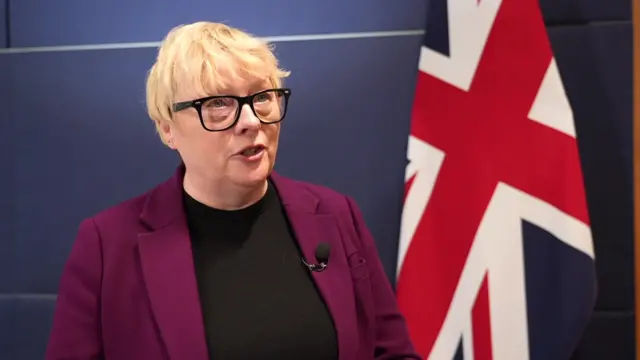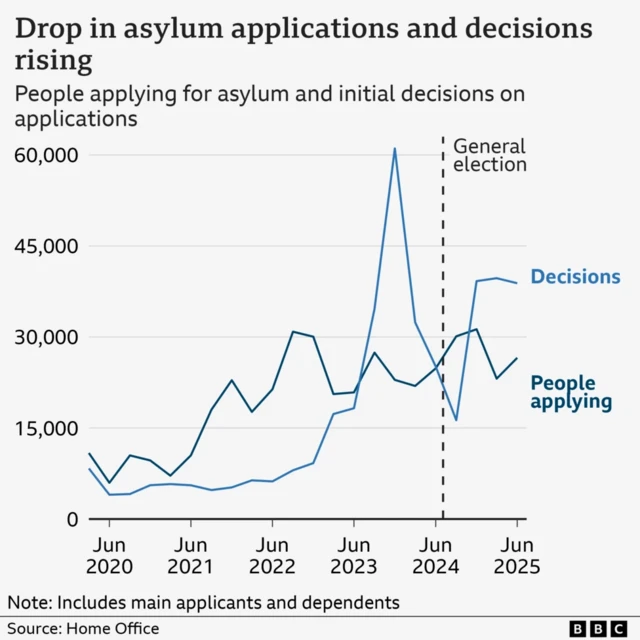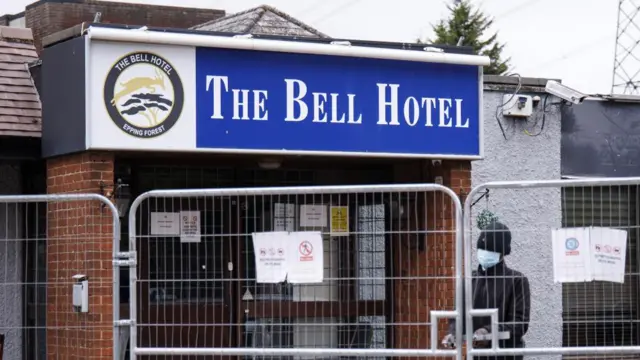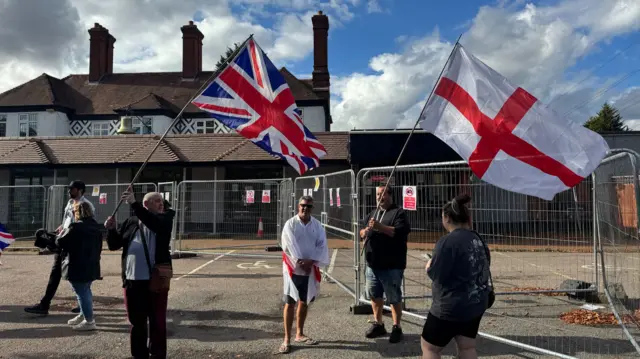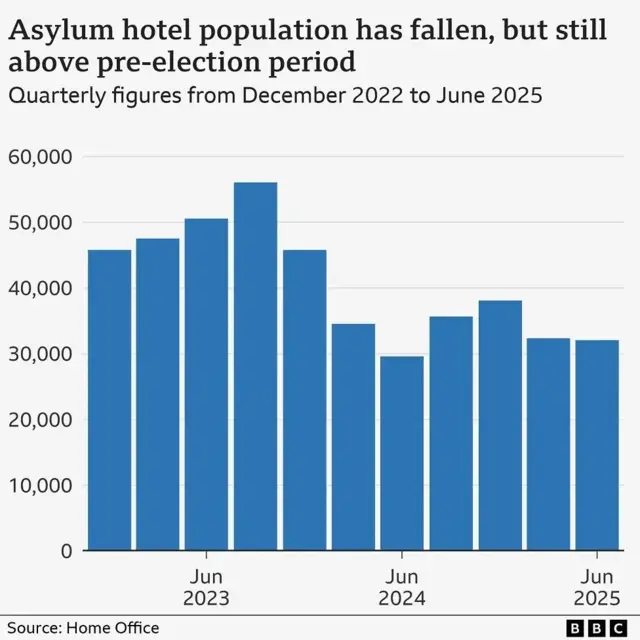Asylum seekers to remain at hotel after appeal winpublished at 19:29 BST 29 August
 Cachella Smith
Cachella Smith
Live reporter
This afternoon, the Court of Appeal overturned a temporary injunction that would have blocked asylum seekers from being housed at the Bell Hotel in Epping, Essex.
Lord Justice Bean, leading a panel of three judges, found the previous High Court decision relied on a number of errors - including ignoring the "obvious consequence" with regarding to asylum seeker accommodation capacity more widely.
Today's ruling means that asylum seekers no longer have to leave the hotel by 12 September - it does not however constitute a final decision with the case due for trial in October.
The Court of Appeal has further allowed the Home Office to be involved in the case where the High Court had not.
Political reaction swiftly followed - with Kemi Badenoch calling it a "setback", Nigel Farage suggesting the government had used the European Convention of Human Rights "against the people of Epping" and the Lib Dems and the Green Party criticising the "legacy" of the Tory government.
Border Security and Asylum Minister Dame Angela Eagle says the Home Office launched its appeal so hotels like the Bell could be "exited in a controlled and orderly way," later adding that “nobody wants to close the Bell Hotel and all other asylum hotels more than me.”
Our political correspondent, Harry Farley, writes that it is a technical victory for the government - but the use of hotels is politically unpopular.
We're closing our live coverage now, but you can read a full write-up of today's ruling here.
